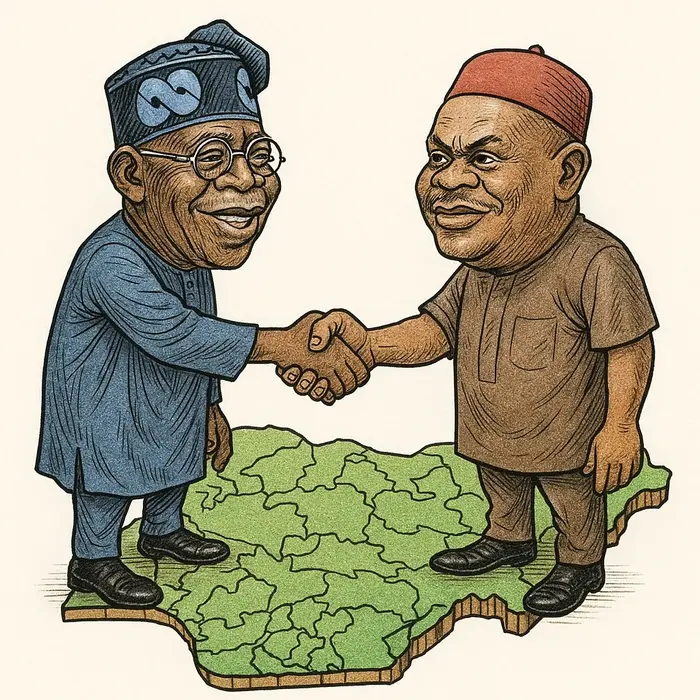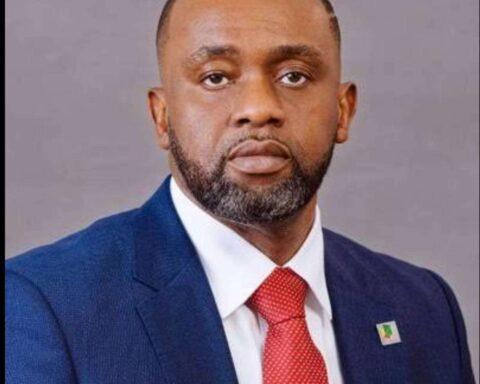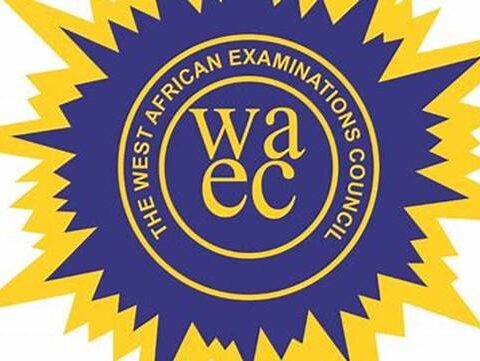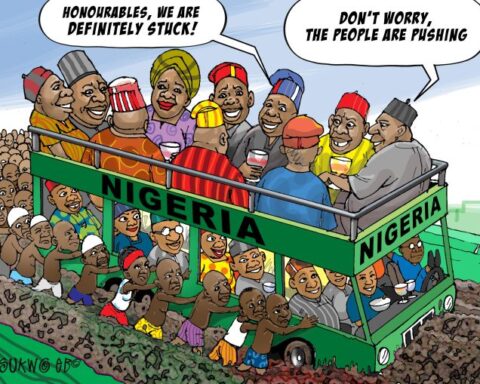(c) Dr. Charles Obiajulu Ugwu
There is a reason the nation feels as though it is dragging a boulder uphill.
It is not simply because corruption exists, or because the wrong people sit in the right offices. Those are symptoms. The deeper truth is that Nigeria’s growth arteries, those systemic channels through which energy, trust, and resources should flow, have long been clogged by an accumulation of structural cholesterol: outdated economic arrangements, brittle governance logic, infrastructural anemia, and a political imagination too timid to match the scale of the people’s ambition.
Every society must wrestle with its own entropy. The problem is that ours has been repackaged as normalcy. We have been sold the idea that muddling through is a strategy. And so, every budget cycle, every election season, we celebrate the marginal gains of “managing” decay instead of reversing it.
This manifesto is not a fantasy list of “nice-to-haves.” It is a practical, almost anatomical dissection of what must be done to reopen the flow of national vitality. Each reform is a surgical intervention, because what we have is not a political headache rather it is a cardiovascular crisis in the body of the republic.
1. Reclaiming Infrastructure as a Sovereign Spine
A nation is only as fast as its slowest road, its weakest grid, and its most fragile port. Nigeria’s public infrastructure is not merely insufficient it is disjointed, designed in silos, and managed as political handouts rather than arteries of productivity.
You cannot run a 21st-century economy on 19th-century logistics. The farmer in Kebbi knows it when his tomatoes rot on the roadside because no refrigerated chain connects him to Lagos markets. The manufacturer in Aba knows it when his goods take longer to reach Accra than it takes a Chinese shipment to arrive from Guangzhou.
Infrastructure must be reimagined as a sovereign spine, a single, integrated system that moves goods, people, energy, and data at world-class speeds. This requires:
National grid unbundling into competitive regional energy markets.
A standard-gauge railway backbone linking all geopolitical zones with time-definite freight services.
Port autonomy reforms that allow deep-water facilities to compete on efficiency and cost.
A national fibre-optic ring that treats internet bandwidth as infrastructure, not luxury.
We must stop funding half-built projects and start building systems that talk to each other.
2. Governance as an Operating System, Not a Court Ritual
Our state machinery operates like a courtroom drama full of titles, ceremonies, and paperwork but incapable of executing at speed. Governance here is still trapped in colonial administrative logic: rules designed for control, not productivity.
We must strip governance to its operating code which includes; clarity of mandate, speed of decision-making, and radical transparency of performance. Singapore did not become Singapore because it wished itself into modernity; it rewrote its state’s operating manual. Rwanda, emerging from genocide, digitised its land registry and streamlined business processes to the point where registering a property takes days, not years.
For Nigeria, this means:
Codifying time-bound service delivery mandates for every ministry, with measurable outputs.
Linking public-sector salaries to performance metrics visible to the public.
Making all procurement processes fully open-source and trackable in real time.
Governance should not be a ritual you endure; it should be a platform you trust.
3. Economic Diversification That Is Not an Empty Slogan
Every administration chants the same hymn: “We must diversify from oil.” Yet the structure of our exports, our tax revenue, and our foreign exchange still obeys the oil barrel’s mood swings.
Real diversification is not a speech it is a capital and policy migration toward new growth engines. We must identify 5–7 strategic sectors such as; renewable energy, agro-processing, creative industries, fintech, pharmaceuticals, and precision manufacturing and give them the infrastructure, tax regime, and market access to scale.
Ethiopia’s textile sector, nurtured through special industrial zones and power subsidies, now competes with Vietnam. Morocco turned Tanger-Med Port into Africa’s largest car-export hub through deliberate clustering of auto manufacturers. Nigeria has equivalent potential if we stop treating diversification as a press release.
4. Security as an Economic Enabler, Not a Budget Black Hole
Security is not just the absence of violence; it is the presence of predictable order. In Nigeria, insecurity is both a drain on GDP and a deterrent to investment. Farmers abandon fertile land. Investors demand risk premiums. Young people migrate, not because they dislike home, but because survival is easier elsewhere.
We must redesign security as an economic enabler:
Community-led intelligence grids that feed into regional security commands.
Rapid-response units tied directly to protecting economic corridors; ports, farms, industrial hubs.
Satellite-based monitoring of resource theft in oil and mining.
Security should be measured not by the number of checkpoints, but by the hours of safe, uninterrupted economic activity.
5. Human Capital as the Core Export
Our most valuable resource is not crude oil it is the Nigerian mind. Yet we train it haphazardly and lose it easily. Education remains the most powerful compounding investment any nation can make. But it must evolve from rote learning toward skills ecosystems.
This means:
Embedding vocational and entrepreneurial training into the secondary curriculum.
Public–private talent pipelines where industry co-designs university syllabi.
A national apprenticeship scheme modelled after Germany’s dual system.
The diaspora remits billions annually. Imagine the compounding effect if Nigeria became the continent’s premium talent factory not just for manual work abroad, but for high-skill industries from AI to biomedical engineering.
6. Fiscal Discipline as a National Religion
We cannot grow faster than we waste. Fiscal indiscipline, bloated recurrent spending, leakages, and opaque debt has hollowed out our budget’s productive capacity.
We must impose fiscal religion:
Cap recurrent expenditure at 60% of total budget within five years.
Mandate citizen-facing disclosure of all debt agreements.
Introduce sunset clauses for all tax waivers and subsidies, forcing periodic justification.
Every naira should have a clear return-on-investment story, visible to those citizens who paid it.
7. The Rule of Law as a Competitive Advantage
Foreign investors often say they can handle risk, but not uncertainty. In Nigeria, laws are fluid, contracts malleable, and enforcement negotiable. This is not just a legal problem; it is an economic one. If we could guarantee that a contract signed in Lagos will be upheld without political interference, we would unlock billions in dormant capital. This requires:
Specialised commercial courts with maximum six-month case cycles.
Full digitisation of case management to prevent file tampering.
Personal accountability for judicial officers who delay justice.
Rule of law is not charity; it is competitive advantage in the marketplace of nations.
8. Diaspora as a Strategic Partner, Not a Nostalgic ATM
Nigerians abroad remit more than our oil revenue in some years. Yet we treat them as sentimental donors rather than strategic co-builders.
We need a Diaspora Investment Act that:
Creates tax-free diaspora investment bonds for infrastructure and tech startups.
Grants dual citizenship without bureaucratic purgatory.
Builds a one-stop digital platform for diaspora participation in governance, procurement, and knowledge transfer.
The diaspora is not an audience; it is an extension of the national operating system.
9. Cities as Engines, Not Administrative Zones
Urbanisation in Nigeria is unmanaged, and therefore dangerous. Lagos, Kano, Port Harcourt. These cities grow but do not breathe. They sprawl without transit logic, absorb without infrastructure, and choke without green space. Cities must be treated as economic engines with their own growth mandates:
Metropolitan governance structures with independent fiscal powers.
Mass-transit masterplans integrated with housing and industrial zones.
Smart-city pilots in each geopolitical zone to model scalable urban futures.
A city is not a crowd of buildings; it is a productivity machine.
10. A National Narrative Worth Believing
Policy alone cannot unclog a nation’s arteries. You must also restore the blood’s willingness to flow. This is where national narrative matters not propaganda, but a shared sense of possibility.
We need to tell ourselves and the world a new story: one where Nigeria is not a cautionary tale but a case study in course correction. South Korea did it. Vietnam did it. The UAE did it. They all began with a deep re-imagination of national purpose.
Our task is not to mimic, but to adapt with the same courage, but in our own voice.
Closing Call:
This is not a manifesto for polite debate. It is a battle plan for the unclogging of Nigeria’s real arteries of growth. It demands from every leader, political, corporate, civic the same thing it demands from every citizen: skin in the game. Because the truth is simple: a body whose arteries remain clogged will die. And a nation that refuses to fix its structural circulation will watch history pass it by.
Dr. Charles Obiajulu Ugwu writes from Lagos.
Follow us on all social media platforms @dailyquery for news and analyses around the globe.



























